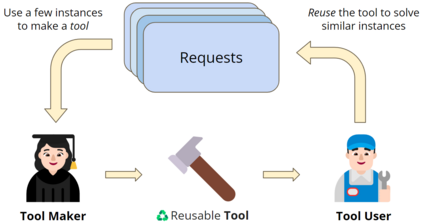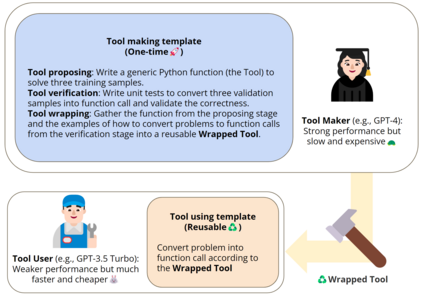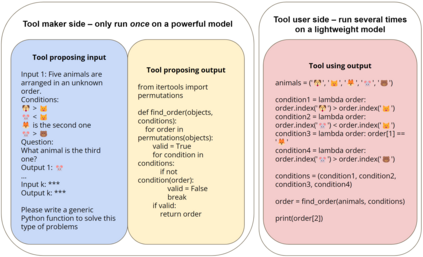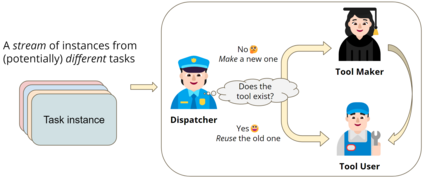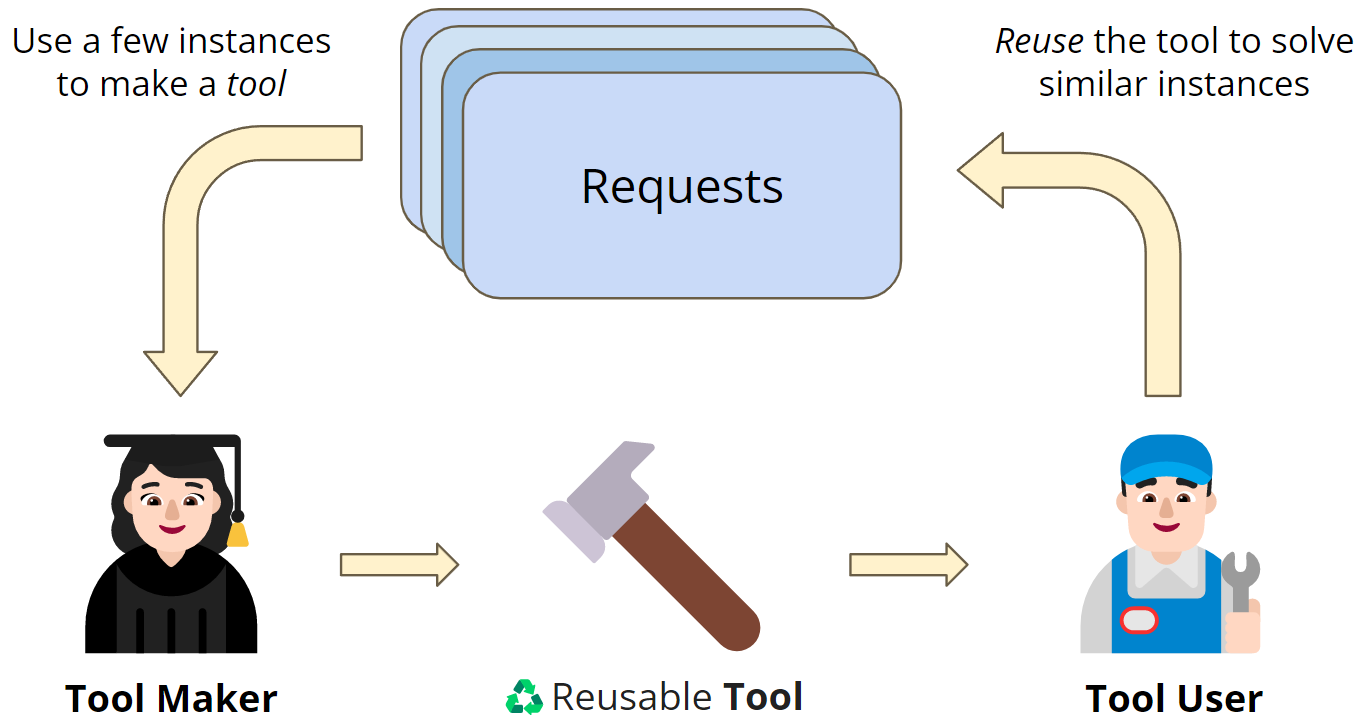Recent research shows the potential of enhancing the problem-solving ability of large language models (LLMs) through the use of external tools. However, prior work along this line depends on the availability of existing tools. In this work, we take an initial step towards removing this dependency by proposing a closed-loop framework, referred to as LLMs As Tool Makers (LATM), where LLMs create their own reusable tools for problem-solving. Our approach consists of two key phases: 1) tool making: an LLM acts as the tool maker that crafts tools for given tasks, where a tool is implemented as a Python utility function. 2) tool using: an LLM acts as the tool user, which applies the tool built by the tool maker for problem-solving. The tool user can be either the same or a different LLM from the tool maker. Tool-making enables an LLM to continually generate tools that can be applied to different requests so that future requests can call the corresponding APIs when beneficial for solving the tasks. Furthermore, the division of labor among LLMs for tool-making and tool-using phases introduces the opportunity to achieve cost effectiveness without degrading the quality of generated tools and problem solutions. For example, recognizing that tool-making demands more sophisticated capabilities than tool-using, we can apply a powerful yet resource-intensive model as the tool maker, and a lightweight while cost-effective model as the tool user. We validate the effectiveness of our approach across a variety of complex reasoning tasks, including Big-Bench tasks. With GPT-4 as the tool maker and GPT-3.5 as the tool user, LATM can achieve performance that is on par with using GPT-4 for both tool making and tool using, while the inference cost is significantly reduced.
翻译:暂无翻译

